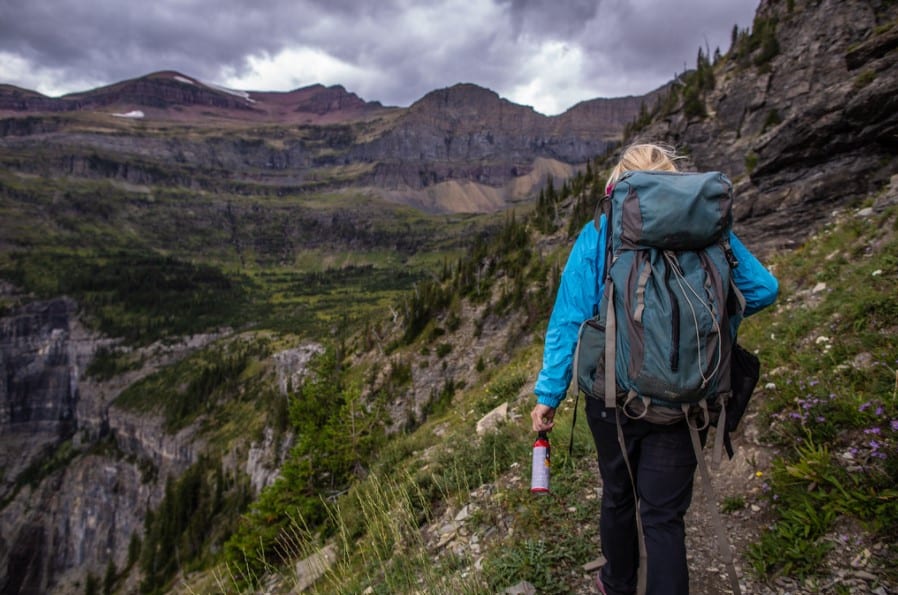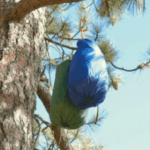For those who crave the thrill of outdoor exploration, there’s nothing quite like a wildlife encounter. The sheer beauty and raw power of wildlife in its own element is nothing short of awe-inspiring, but as climbers, it’s essential to remember that you’re a mere guest in their natural habitat.
The untamed wilderness is home to a host of creatures, including bears, wolves, and cougars, that reign supreme. The experience can be a cocktail of wonder and terror when your paths intersect with these large predators. From a distance, their beauty takes your breath away, but up close, their might is enough to make you quake with fear.
Mountaineering safety tips to remember
Mountaineering can be an exciting and rewarding experience, but it’s important to remember that risks are involved, especially when encountering large predators. Whether scaling a mountain in search of adventure or embarking on a multi-day trek, preparing for potential encounters with animals like bears, wolves, and mountain lions is crucial.
So, before you lace up your hiking boots or pack your outdoor gear, take time to learn some essential tips and strategies for defending yourself from large predators while mountaineering:
Arm yourself with defensive tools and gear
The first step in defending yourself from large predators is researching. Before you head out on your mountaineering trip, spend some time to learn about the animals you may encounter in the area.
Familiarize yourself with their behavior, preferred habitats, and typical attack patterns. By understanding these key details, you can better prepare yourself for a potential encounter and make informed decisions about handling the situation.
If you’re unable to back away from a large predator or if it begins to charge, it may be necessary to use defensive tools to protect yourself. In addition to bear spray, you may want to carry a loud air horn, a whistle, or a flare gun.
You can use these tools to scare off the animal or signal for help in a remote area. For those who prefer firearms, investing in quality ammo that can effectively stop the animal without causing unnecessary harm to yourself or others is important.
In case of an attack, your best option is to fight back. Contrary to popular belief, playing dead isn’t an effective defense strategy against animals like mountain lions, which are known to attack their prey from behind. Instead, you should fight back with everything you’ve got. Use rocks, sticks, or whatever other tools you have at your disposal to fend off the animal and protect yourself.
Make noise
Making noise is one of the best ways to avoid encountering a large predator. Sneaking up on large animals is never a good idea. They generally don’t appreciate unexpected visitors, and upon hearing you approach, they’ll likely steer clear of your vicinity.
Animals like bears and mountain lions tend to be shy and often avoid humans if they hear them coming. When hiking or climbing, make plenty of noise by talking, singing, or using bells or whistles. This will alert any nearby predators to your presence and give them ample time to move away.
Carry bear spray
Bear spray is a powerful deterrent that can help protect you from large predators. It’s a non-lethal form of self-defense that sprays a cloud of an irritant into the air, making it difficult for animals to breathe or see.
When used correctly, bear spray can help prevent an attack or give you enough time to get away.
Be sure to always carry a can of bear spray with you, and ensure you know how to use it properly.
To guarantee preparedness for potential encounters with bears while hiking, it’s advisable to practice using bear spray before hitting the trail. Though this may seem unconventional, the confidence boost it provides is invaluable for feeling secure in the wilderness. Additionally, it’s best to avoid wearing perfume while hiking, as it can inadvertently draw bears to your location.
Please check out our article on how to keep food safe from bears and other animals.
Stay calm

Did you know that according to the World Animal Foundation, bears often attack to defend themselves when threatened, making this the leading cause of bear attacks?
That said, if you encounter a large predator, such as a bear, staying calm is essential. While it’s natural to feel frightened or panicked in this situation, it’s important to remember that animals can sense fear and may become more aggressive if they perceive you’re a threat. Try to remain calm and move slowly and deliberately without sudden movements or loud noises.
Should an encounter happen, the best thing you can do is to back away slowly. Avoid turning your back on the animal, as this can trigger an attack. Instead, face the animal and slowly back away while keeping your eyes on the predator at all times. Make yourself appear larger by holding your arms up and spreading your jacket or backpack. Create loud noises as well to scare the animal away.
Takeaways
Encountering large predators while mountaineering can be a frightening and potentially dangerous experience. However, by staying prepared, such as doing your research and using defensive tools, you can increase your chances of avoiding or surviving an attack.
Always remember to be aware of your surroundings and take precautions, such as practicing with bear spray, to prepare for any potential threats. Though it’s impossible to eliminate the risks of encountering a predator while mountaineering, following these guidelines can help ensure a safer and more enjoyable experience outdoors.
Before your next adventure, be sure to take a look at our Essential Camping Checklist.








